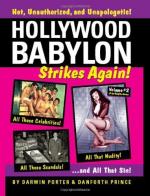|
This section contains 512 words (approx. 2 pages at 300 words per page) |

|
Although many people and businesses suffered during the Great Depression (1929–41), the movie industry did not. In fact, the years of the 1930s are considered the golden era of Hollywood cinema. Eighty-five million people a week crowded movie theaters across America to escape their sometimes desperate financial situations. From black-and-white and two-color "B" movies to new three-color Technicolor "A" movies, audiences had huge quantities of movies from which to choose.
The technological advances of color and sound made the best movies truly extravagant. Broadway choreographer Busby Berkeley (1895–1976) created some of the most elaborate musicals. Dancing partners Fred Astaire (1899–1987) and Ginger Rogers (1911–1995) turned dance into an art form on film. Large, powerful movie studios turned actors and actresses, such as Marlene Dietrich (1901–1992), young Shirley Temple (1928–), and Mickey Rooney (1920–), into superstars by featuring them in film after film. Rooney played the popular character Andy Hardy in a...
|
This section contains 512 words (approx. 2 pages at 300 words per page) |

|



